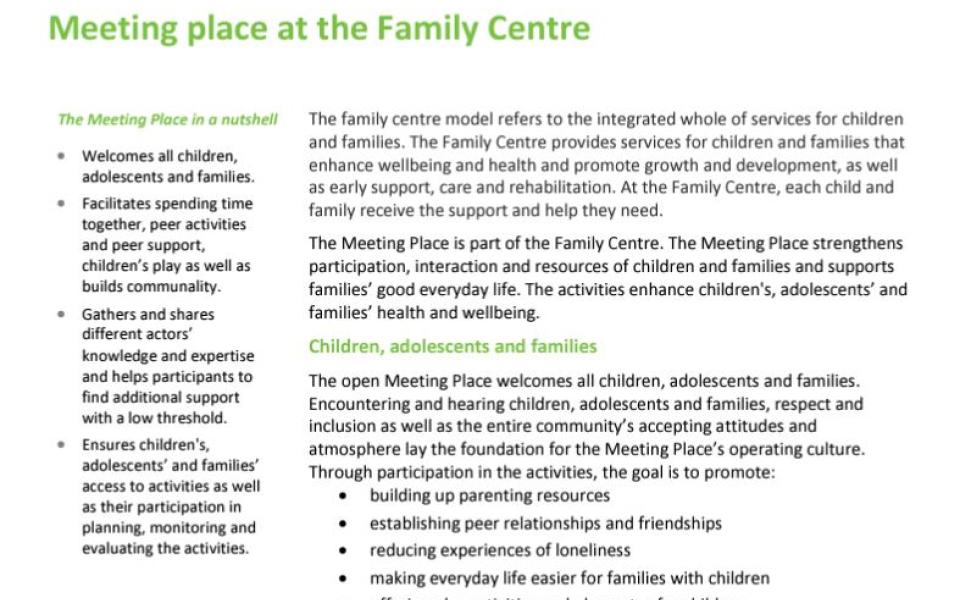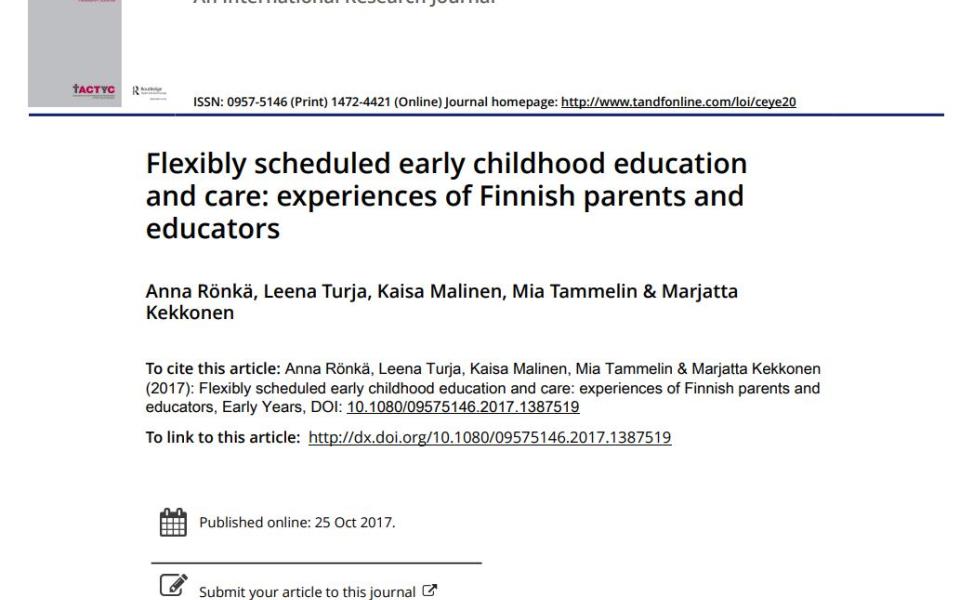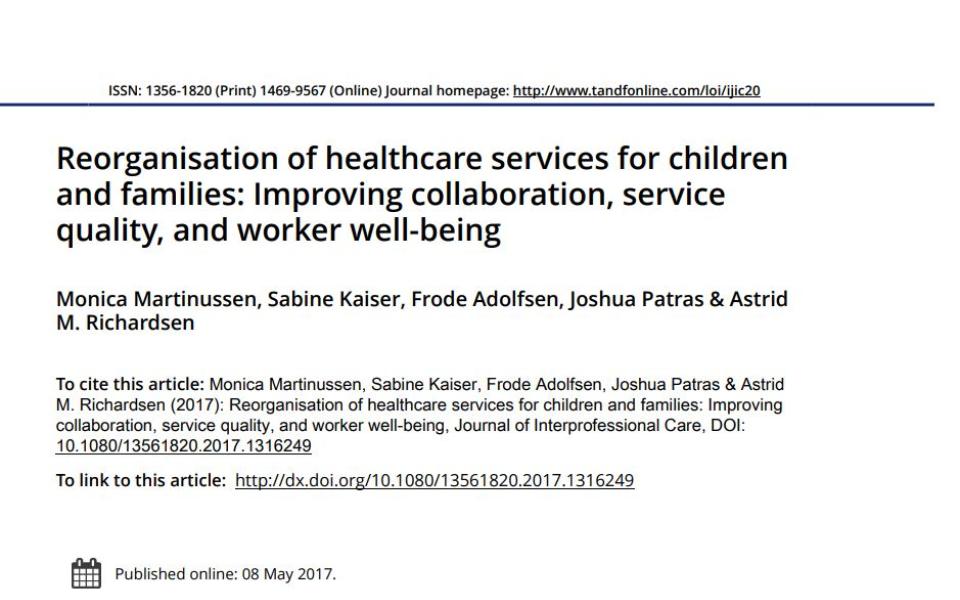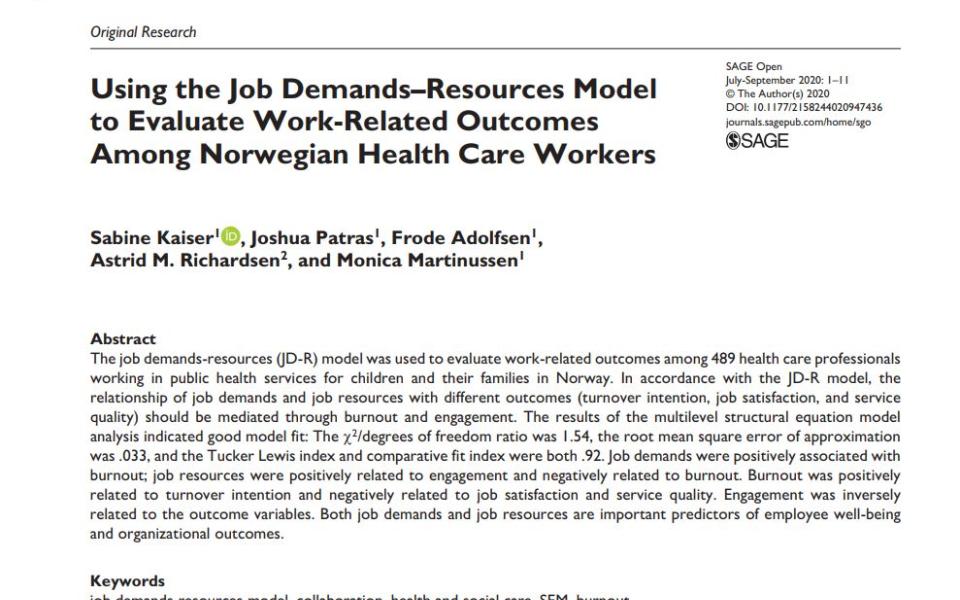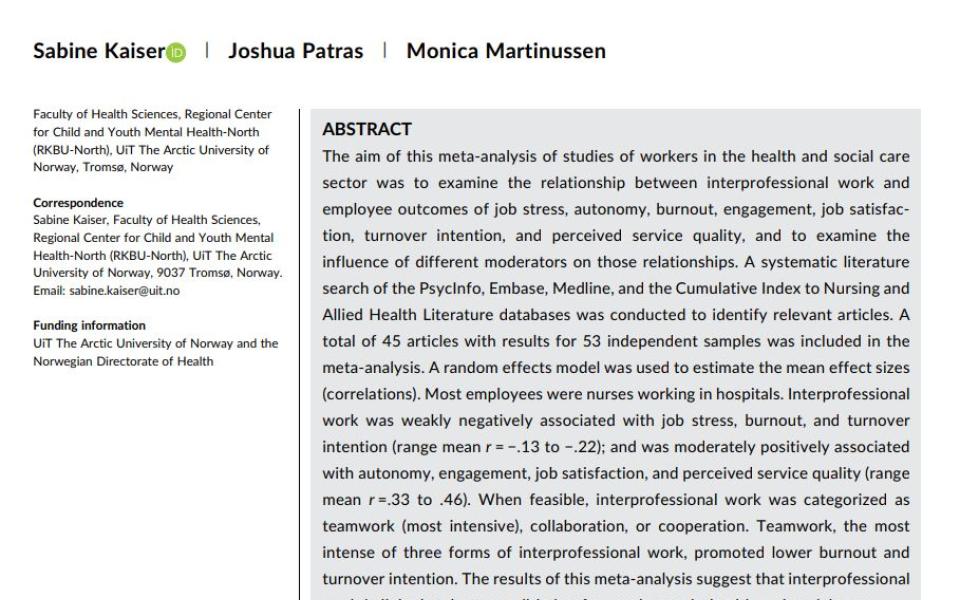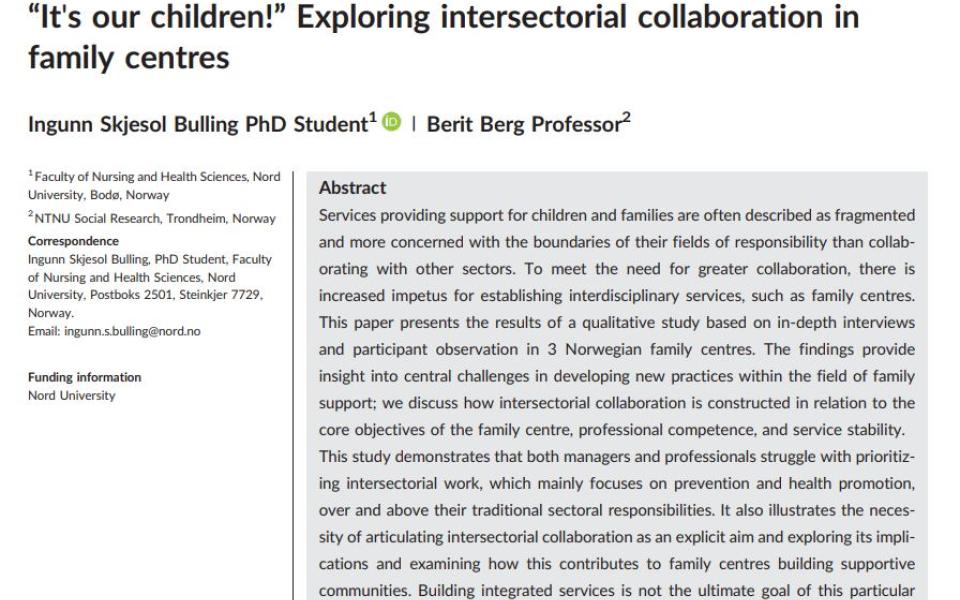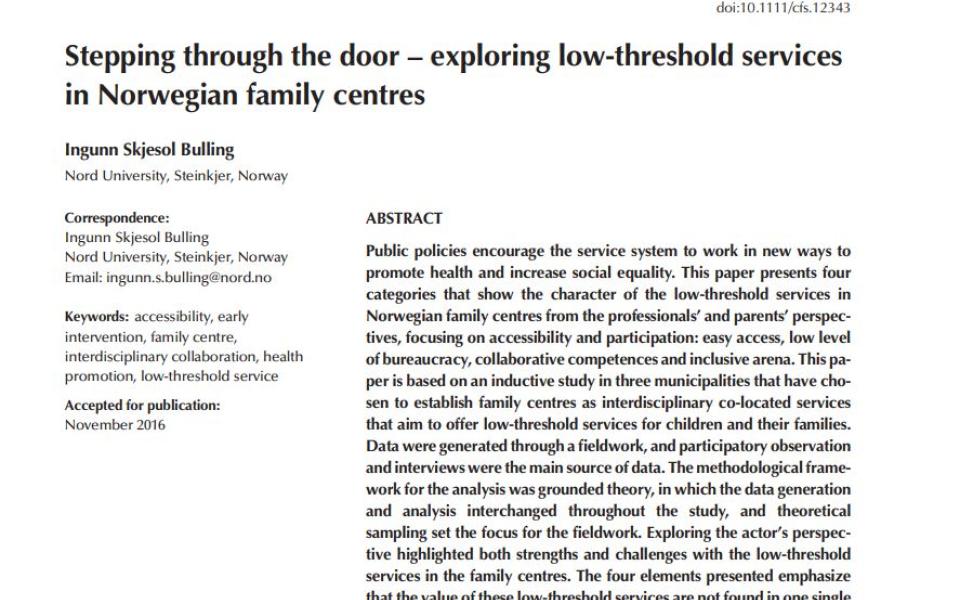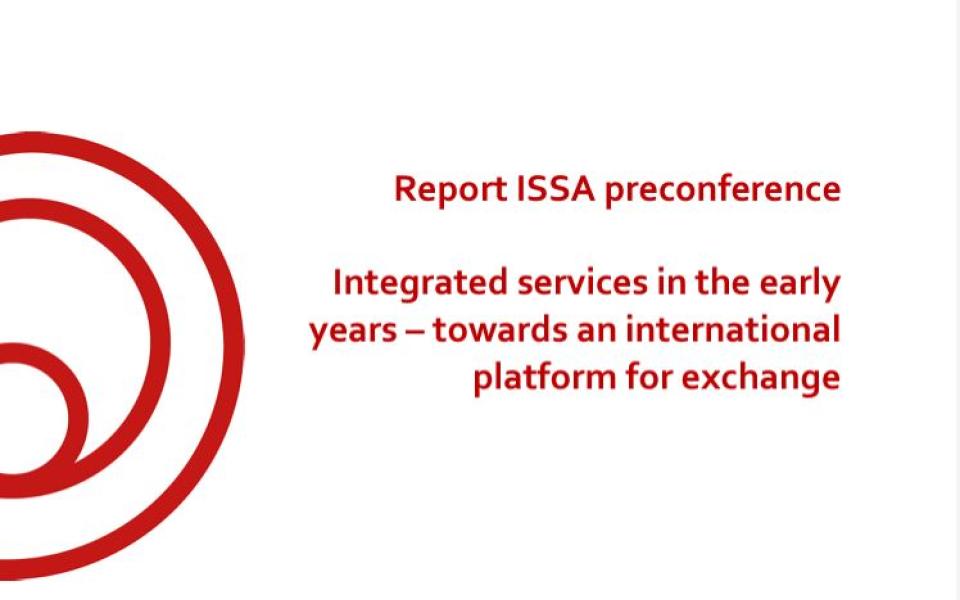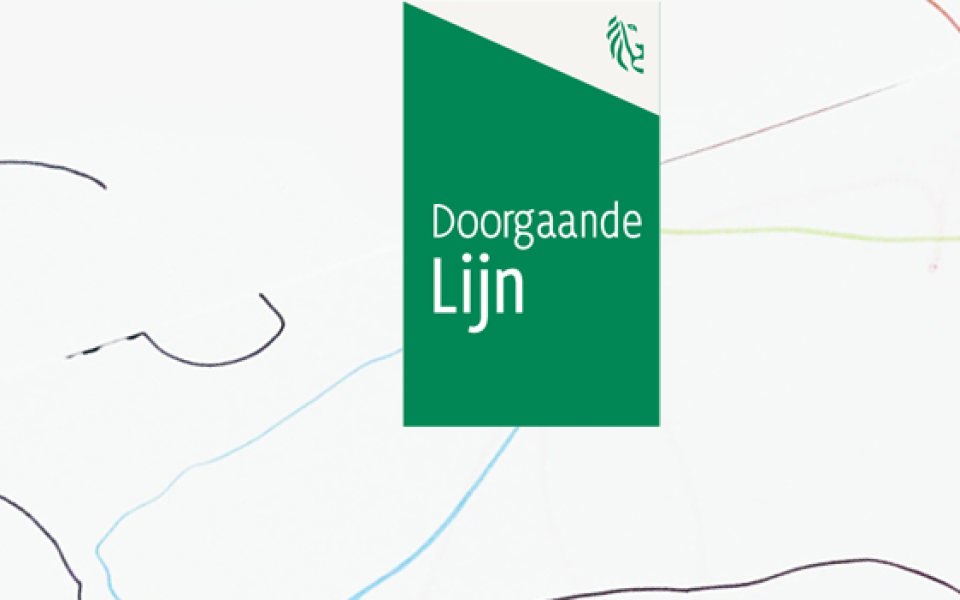Tijdens dit project mochten we inspirerende praktijken uitwisselen rond het vergroten van de toegankelijkheid van geïntegreerde basisvoorzieningen voor alle gezinnen met jonge kinderen, samen met onze partners VBJK, Kind en Gezin, EXPOO (Vlaanderen), THL (Finland), Universiteit van Tromso (Noorwegen), Universiteit Mikolaya Kopernika (Polen), MALA ULICA (Slovenië).
Kind en Gezin, VBJK en EXPOO submitted an apllication for Erasmus+ on the topic of increasing accessibility of integrated ECEC-services to support all families with young children. The admission is approved. The international platform startet at the end of 2018 with a kick-off in Brussels.
Partners of the platform are VBJK, Kind en Gezin, EXPOO (Flanders), THL (Finland), University of Tromso (Norway), University Mikolaya Kopernika (Poland), MALA ULICA (Slovenia).
The aim of IAS is to exchange ideas and inspiring practices between policy, practice and research on improving accessibility of integrated services for these (vulnerable) families with young children. The exchange of ideas and inspiring practices happens on different levels:
- Relation professional/services – families
- Role Policy Makers
We want to elaborate these two levels on local, national and European level. To achieve these two main goals, we want to visit one or more integrated ECEC-services in the country of each partner organisation.
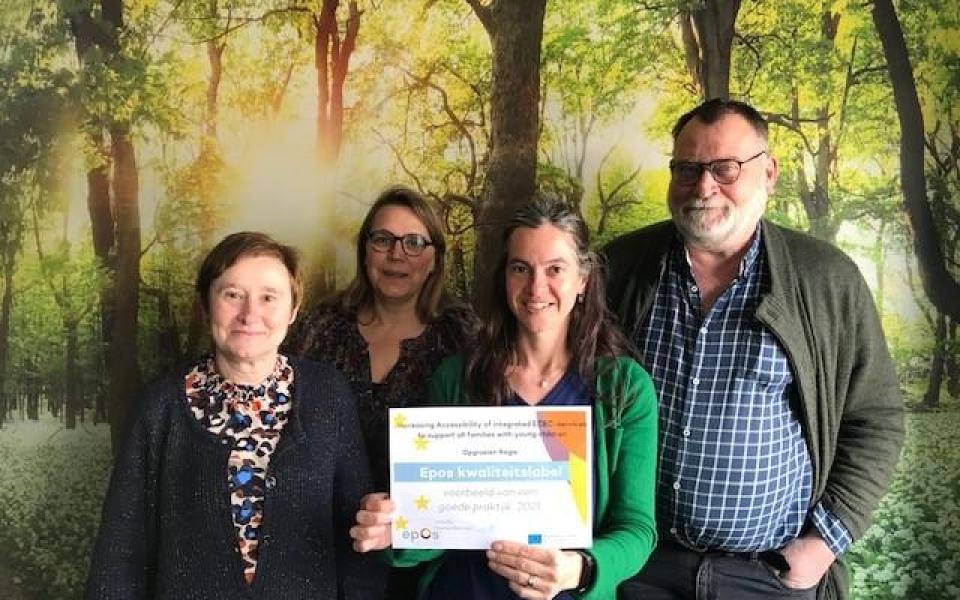
International meetings
In each country a 3 day meeting (called the IAS-meeting) is organized, combining study visits to inspiring practices, with discussion and working tables.
More inspiring practices, research and policy
- Open kindergarten in Norway - Norway
- Intersectoral collaboration in Family centres in Norway- the importance of management structures - Norway
- Garden in Rakova Jelsa - open meeting place - Slovenia
- Chats for empowering mothers - Slovenia
- Oratorium 'Michalici' - open place for children - Poland
- Family assistant - one form to support family - Poland
- ‘Taalbubbels+’: an integrated service of integration courses, family support and childcare and basic literacy courses and Dutch courses - Belgium
- Community-focused network for children and families - Belgium
- Criteria for Meeting Places - Finland
- Assessment Tool for Family Meeting Places - Finland
Criteria for Meeting Places - Finland
The quality criteria guide different meeting place actors to negotiate and agree on practices to enhance accessibility of services for families with children. Quality criteria help to build management, coordination and planning structures and processes of open meeting places. Criteria cover the following topics:
- Integration with the Family centre services,
- Systematic operation, planning and evaluation,
- Coordination,
- Accessibility,
- Building togetherness and community,
- Promotion of encounters and support,
- Information about activities,
- Competence and professional guidance.
"By producing criteria for a Meeting places make these services and actors more visible among policy makers and managers. Criteria are frequently used as a tool for local development steps in municipalities and regions. Criteria function as guidelines and help diverse meeting places connect together as a network and coordinate activities along the same principles."
Focus groups
Focus groups were used to gain insight into accessibility in integrated ECEC-services in the partner countries because this method enables participants to explore topics related to their own practice (Barbour & Flick, 2007). Focus groups allow participants to take a prominent position, and participants often report that taking part helped them gain new insights (Halkier, 2016), thus fitting the aims of this project. The focus groups were conducted over a period of eleven months from the 14th of February 2020 to 20th January 2021. Due to the restrictions following the Covid-19 pandemic some of the Focus groups organised using a digital platform.
IAS Focus group report - Overarching themes
This report draws on the focus groups and project meetings to present overarching themes from the project on three main topics, integrated working, accessibility and Involvement.
Each partner country held focus group interviews to explore perspectives on accessibility of integrated ECEC-services from important stakeholders in the five countries.
